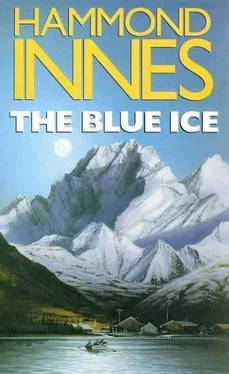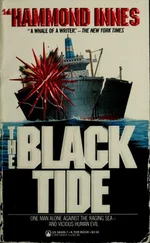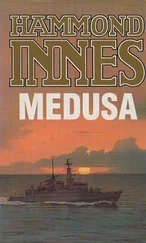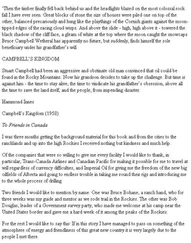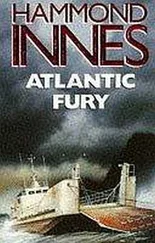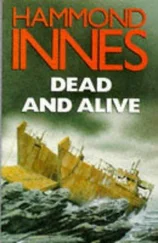Hammond Innes - Blue Ice
Здесь есть возможность читать онлайн «Hammond Innes - Blue Ice» весь текст электронной книги совершенно бесплатно (целиком полную версию без сокращений). В некоторых случаях можно слушать аудио, скачать через торрент в формате fb2 и присутствует краткое содержание. Жанр: Прочие приключения, на английском языке. Описание произведения, (предисловие) а так же отзывы посетителей доступны на портале библиотеки ЛибКат.
- Название:Blue Ice
- Автор:
- Жанр:
- Год:неизвестен
- ISBN:нет данных
- Рейтинг книги:4 / 5. Голосов: 1
-
Избранное:Добавить в избранное
- Отзывы:
-
Ваша оценка:
- 80
- 1
- 2
- 3
- 4
- 5
Blue Ice: краткое содержание, описание и аннотация
Предлагаем к чтению аннотацию, описание, краткое содержание или предисловие (зависит от того, что написал сам автор книги «Blue Ice»). Если вы не нашли необходимую информацию о книге — напишите в комментариях, мы постараемся отыскать её.
Blue Ice — читать онлайн бесплатно полную книгу (весь текст) целиком
Ниже представлен текст книги, разбитый по страницам. Система сохранения места последней прочитанной страницы, позволяет с удобством читать онлайн бесплатно книгу «Blue Ice», без необходимости каждый раз заново искать на чём Вы остановились. Поставьте закладку, и сможете в любой момент перейти на страницу, на которой закончили чтение.
Интервал:
Закладка:
‘He didn’t send it to me,’ I replied. ‘I don’t know who it was sent to.’ She made no comment and I said, ‘When did you last see him?’
‘I told you,’ she answered. ‘I met him when I was working for the Kompani Linge. Then he went on the Maloy road. He — he didn’t come back.’
‘And you never saw him after that?’
She laughed. ‘All these questions.’ Her laughter trailed away into silence. ‘Don’t let’s talk about it any more.’
‘You were fond of him, weren’t you?’ I persisted.
‘Please,’ she said. ‘He’s dead. Just leave it at that.’
‘If you wanted it left at that,’ I answered, ‘why did you come along this morning, all packed and ready to go to Norway? Was it just a sentimental desire to see the grave?’
‘I don’t want to see the grave,’ she said with sudden heat. ‘I don’t want ever to see his grave.’
‘Then why did you come?’ I insisted.
She was about to make some angry retort. But suddenly she changed her mind and looked away from me. ‘I don’t know,’ she said. She spoke so softly that the wind whipped her words away into the night before I could be sure of what she said. Then she suddenly said, ‘Will you take the wheel now, please. I’m going below for a moment.’ And that was the end of our conversation. And when she came up on deck again she stood out in the wind by the port navigation light, a tall, graceful figure, even in a duffle coat, moving rhythmically to the dip and climb of the ship. And I sat on at the wheel, talking to Wilson who had sat himself down in the cockpit and wondering how much she knew and what Farnell had meant to her.
We were near the Sunk Lightship now. I altered course for Smith’s Knoll Lightship. An hour later we called the starboard watch and I took the log reading and marked up our course on the chart. Since setting sail we’d made a steady eight and a half knots. ‘Course is north thirty-six east,’ I told Dick as I handed the wheel over to him.
He nodded vaguely. He was always like that first day out. In the six years he’d been in the Navy he’d never been able to conquer seasickness. Wright was feeling bad, too. His face looked green and sweaty and in contrast his hair flamed a brighter red in the glare of the chartroom light. Jorgensen, on the other hand, attired in borrowed sweaters and oilskins, was as unaffected by the movement of the ship as Carter, who’d acclimatised himself by many years in the stoke-holes and engine-rooms of aged freighters.
My watch was called again at four in the morning. The wind had strengthened to about Force 5, but the ship was riding easier. They had taken a tuck in the sails. Nevertheless, the movement was considerable. The sea had increased and Diviner was plunging her bowsprit like a matador’s espada into the backs of the waves. All that day the wind held from the south-east, a strong, reaching wind that sent us plunging on our course across the North Sea at a steady seven to eight knots. By dusk we were 155 miles on our way to Norway. Watch and watch about, and with every bit of sail we could carry, it was like real ocean racing. I almost forgot about the reason for the trip to Norway in the sheer exhilaration of sailing. The weather forecasts were full of gale warnings and shortly before midnight we had to shorten sail again. But the next day the wind lessened slightly and backed to the north east. We shook out one of our reefs and, close hauled, were still able to steer our course.
During those two days I got to know Jill Somers pretty well. She was twenty-six — tall and active, and very calm in a crisis. She wasn’t beautiful in the accepted sense of the word, but her boyish ease of movement and her zest for life gave her a beauty of her own. Her charm was in her manner and in the way her rather wide mouth spread into a smile that was slightly crooked. And when she smiled her eyes smiled too. She loved sailing and in the excitement of the wind’s driving force we forgot about George Farnell. Only once was his name mentioned. She was telling me about how she and her father had got out of Norway just before the German invasion and how after some months in England she had got in touch with the Kompani Linge through the Norwegian military authorities in London and arranged to work for them. ‘I just had to do something,’ she said. ‘I wanted to be in it with everybody else. Daddy wangled it. He was in the Norwegian Shipping and Trade Mission in London. I went up to Scotland and began work right away at their headquarters — I and five other girls kept a twenty-four-hour radio watch. That was how I met Bernt Olsen.’
‘Did you know his real name was George Farnell?’ I asked.
‘Not then. But he was dark and short and one day I asked him if he was really Norwegian. He told me his real name then.’
‘Did he also tell you he was an escaped convict?’ I asked.
‘Yes,’ she said, smiling quietly to herself. ‘He told me everything there was to tell me about himself then.’
‘And it made no difference to you?’ I inquired.
‘Of course not,’ she answered. ‘We were at war. And he was training for one of the first and most desperate raids into what was by then enemy territory. Three months later he went into Norway on the Maloy raid.’
‘He meant a lot to you, didn’t he, Jill?’ I asked.
She nodded. She didn’t speak for a moment and then she said, Yes — he meant a lot to me. He was different from the others — more serious, more reserved. As though he had a mission in life. You know how I mean? He was in uniform and training hard for a desperate job — and yet he wasn’t a part of it all. He lived — mentally — outside it.’
It was this description of Farnell before the Maloy action that intrigued me. Farnell’s interest in life was metals. In this respect he had been as much an artist as a painter or a musician. War and his own life were small matters in the balance against the excitement of discovering metals. Curtis Wright’s description of Bernt Olsen at the moment of going into Maloy and Jill’s account of him prior to embarkation all added up in my mind so one thing — Farnell had been after new metals in the mountains of Norway.
Farnell wasn’t mentioned again. On watch our minds were fully occupied with the sailing of the boat, and keeping awake. Unless you have done any passage-making it is difficult to realise how completely one becomes absorbed in the operation of a ship. There is always something to concentrate on, especially for the skipper. When I wasn’t at the wheel there were log readings to take, the dead reckoning to work out, position to be fixed by shooting the stars or the sun whenever opportunity offered, radio watch to be kept at certain times, forecasts to be listened to, sails to be checked. And over everything was the dead weight of sleepiness, especially in the early watches.
And there was little chance to get to know Jorgensen or Wright. Certainly no opportunity to discuss Farnell with them. As long as the wind held it was watch and watch about. The watch on duty went below as soon as it was relieved by the other watch. And during the day there were meals to get and the other chores to be done. And every now and then the watch below had to be called to help change sails. All I had time to notice in those first two days was that Jorgensen was a first-rate sailor and seemed to be literally enjoying the trip and that Curtis Wright settled down quickly.
The third day out the wind veered back to sou’-sou’-east. We were able to take out our last reef, set main tops’l and yankee. The sea lessened to a steep swell. We were nearly four hundred miles on our way by then and the sun was shining. We began to sight some of the trawlers of the Aberdeen fleet. There were gulls about and occasionally a stormy petrel skimmed low over the tumbled waters like a flying fish.
Читать дальшеИнтервал:
Закладка:
Похожие книги на «Blue Ice»
Представляем Вашему вниманию похожие книги на «Blue Ice» списком для выбора. Мы отобрали схожую по названию и смыслу литературу в надежде предоставить читателям больше вариантов отыскать новые, интересные, ещё непрочитанные произведения.
Обсуждение, отзывы о книге «Blue Ice» и просто собственные мнения читателей. Оставьте ваши комментарии, напишите, что Вы думаете о произведении, его смысле или главных героях. Укажите что конкретно понравилось, а что нет, и почему Вы так считаете.
